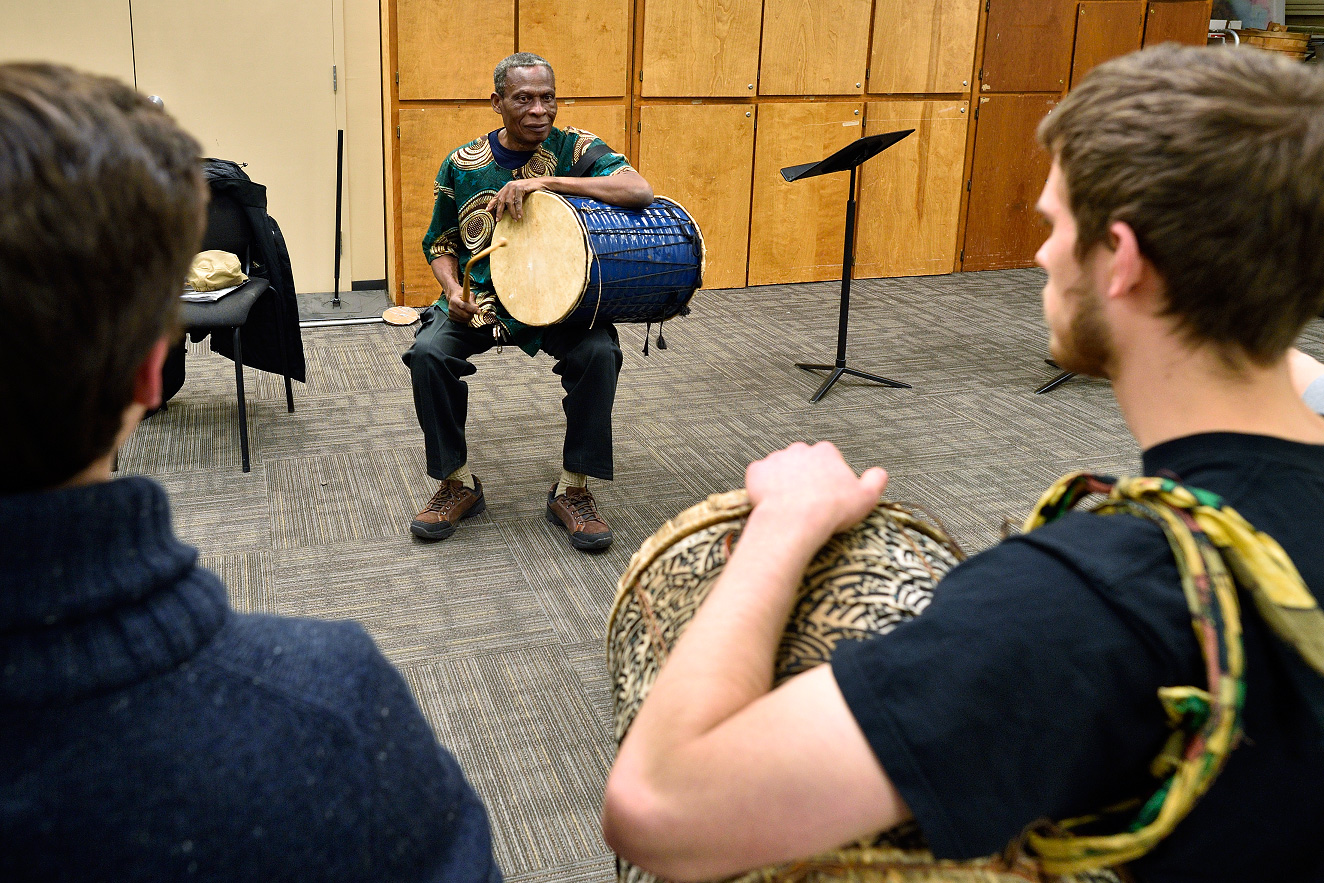
DENTON (UNT), Texas -- Drums can do more than just provide a beat. For the Anlo-Ewe people in Ghana, West Africa, they can tell stories, cure diseases, promote fertility and summon spirits. University of North Texas College of Music Professor of Percussion Gideon Alorwoyie has received a grant to study and record their traditional ritual drum language to help develop a better understanding of the music, also known as Brekete, and to preserve its history. Alorwoyie, who is from Anlo-Afiadenyigba in the Volta Region of Ghana, also is a high priest of the Yewe religion and a master drummer (view a video of Alorwoyie performing at the UNT 2012 African Cultural Festival). He says that having these designations gives him the connections needed to conduct his research about the drumming language.
"As a high priest and musician, I have the power to work with my colleagues," Alorwoyie said. "They only share their craft with other priests. Each drum has its own language – the way it's played determines its story. I want to figure out what the drums say and what's behind the stories – what's in the drummers' heads. I want to put it all together."
For the Anlo-Ewe, a drum is a super projection of the human voice and can be used to create tonal sounds to "speak" their language. The Brekete shrine tradition began in the 1900s as a religious ceremony of drumming and singing to help solve problems, promote fertility, cure illnesses, support success and protect against evil. It is still used today in wakes, memorial services and at important events, but Alorwoyie says that as time has progressed, the music has lost its language. Modern-day Brekete musicians are playing only a rhythm and no longer know the meaning behind the songs. He plans to travel to Ghana in May to document the stories of master drummers so that the rich history is preserved.
"It takes time to learn," Alorwoyie said. "You have to study it to discover the value of it. I want to have a record of it for future generations, and for students of ethnomusicology and African studies."
Alorwoyie says the ritual music also has the power to conjure spirits and cause possessions. He says he wants to learn how the divinities find their intended targets: "Was it the drum? Was it the song? Was it the composition? Or, was it something else entirely?"
While he says he uses his powers as a priest to create protective safeguards – health, safety and a long life for family and friends – he is still trying to understand which part of his songs are most crucial to causing the positive effects as well.
He plans on working with several master drummers of the shrine tradition, and will videotape the drummers both playing and "speaking" the particular patterns. He will then record interviews with the drummers to have them explain the meaning and history of the drum texts. He hopes his research will not only find answers to questions about the Brekete rhythms and the effects they have on people, but will have an impact on future generations of the Anlo-Ewe.
"I want to preserve the messages behind the beat of the drums," Alorwoyie said. "I want to keep history alive."
About the UNT College of Music
The College of Music is one of the largest and most respected comprehensive music schools in the world. Approximately 1,500 music students attend the college each year, participating in nearly 70 widely varied ensembles while engaged in specialized studies in performance, composition, conducting, jazz studies, music education, music history, music theory or ethnomusicology. Music students, alumni and faculty have made appearances on the world's finest stages, have produced numerous recordings with many receiving Grammy awards and nominations, and have written influential texts in a variety of areas in music scholarship. Distinguished University alumni can be found around the globe in top music ensembles, opera companies, universities, and schools.




